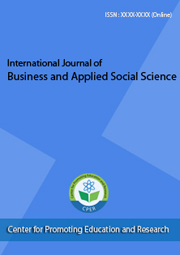Journal Menu
current
VOLUME: 5; ISSUE: 7; JULY: 2019
Table of Contents
Articles
Author(s): Deergha Raj Adhikari Ph.D.
Full Text
1273 1050
1273 1050
Abstract:
Last year, the Trump administration imposed import tariffs of 10 and 25 percent on the import of steel and aluminium respectively. The administration also imposed an additional tariff on more than $200 billion worth of imports from China. In this study, we examine the welfare impact of such tariffs on the U.S. welfare in general. We apply Ju and Krishna’s (2003) sufficient condition for trade reform to be welfare enhancing and test the condition using an import function. The sufficient condition for a trade policy (i.e. the import tariff) to be welfare improving as laid out by them requires that the value of import be higher than that before tariffs when the value of import before and after both are evaluated at post-tariff prices. Based on this condition, we develop an import function, in which the value of U.S. import (IMt) is a function of import price index (IPIt) and U.S. real GDP (URGDPt). If the coefficient associated with IPI turns out to be positive and significant, then we conclude that the rise in import price including that due to the import tariff, will increase the value of import satisfying the sufficient condition for welfare improvement, which leads us to conclude that the import tariff has improved U.S. welfare.We estimated our model using Vector Error Correction technique. In the long run equation, the coefficient associated with the variable 〖IPI〗_(t-1) is found to be negative and significant at 5% significance level, implying that an increase in import price caused by a tariff will lower the value of import in the long run. In the short-run equation, on the other hand, the coefficients associated with the variables 〖ΔIPI〗_(t-1) and 〖ΔIPI〗_(t-2) both turned out to be positive but insignificant, which implies that any tariff-raised increase in import price will have no effect on the value of import in the short run failing to satisfy the sufficient condition. Therefore, we conclude that the import tariff currently imposed by the United States may not improve U.S. welfare and may rather worsen it in the long run.






